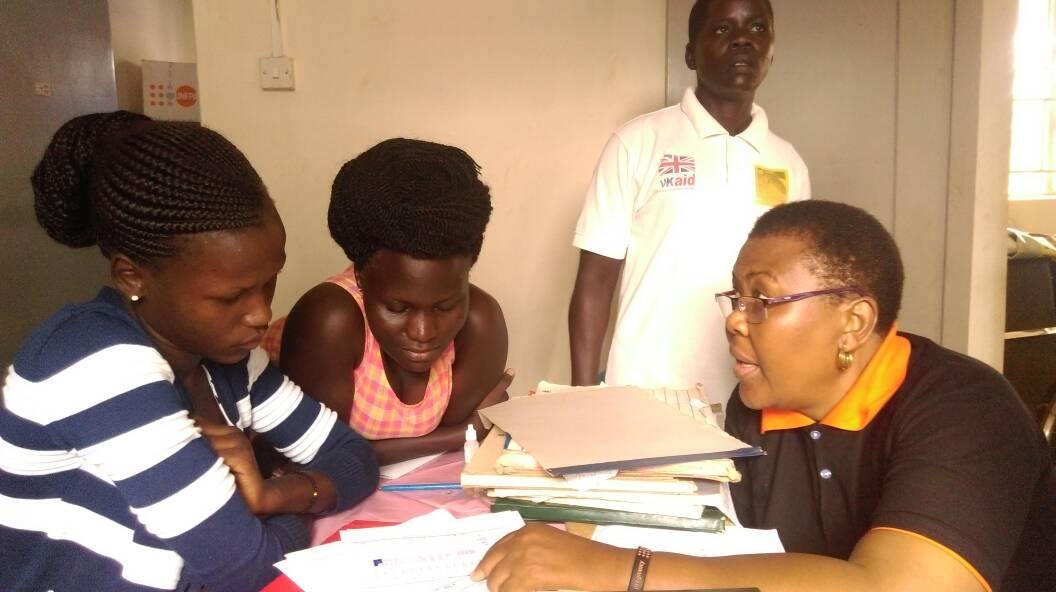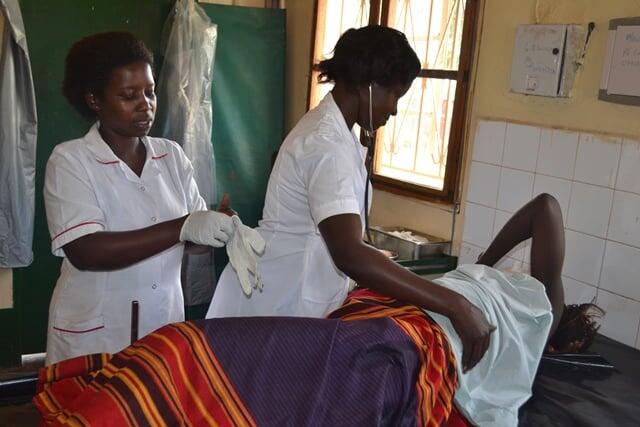UNFPA has provided midwifery support supervision to 20 midwives working in health facilities in the refugee settlements in Lamwo and Adjumani districts to identify gaps in the delivery of Emergency Obstetric Care services and mentor the midwives where needed.
The routine support supervision that also aims to identify gaps in the implementation of Maternal, Perinatal Death Surveillance and Response and give guidance to ensure functionality and reducing on maternal mortality in humanitarian settings took place in the week of September 11-16, 2017.
Supported by UNFPA Country office National Programme Analysts Ms Maria Najjemba (midwifery) and Dr. Peter Kivunike Mukasa (Maternal Health/Fistula), Madipe HC IV, Ogili Palabek HC III and Palabek HC III (Lamwo District) and Mungula HC IV and Adjumani Hospital (Adjumani district) benefited from this exercise. 
Since 2013, UNFPA has recruited 36 midwives who are deployed in the refugee settlements of Adjumani, Arua, Moyo, Lamwo, Kiryadondo and Kyangwa. As a result, 57,884 women accessed antenatal care, 4,755 pregnant mothers were referred using the strengthened ambulance system, 47,850 mothers delivered from health facilities and 13,571 mothers utilized postnatal care services.The returns on investing in human resources with midwifery skills are enormous. According to the State of the World’s Midwifery Report (2010), midwives, when empowered, fully trained, well equipped and authorized to practice all essential basic lifesaving competencies, can help avert two thirds of maternal and new born deaths. Midwives also play a key role in the prevention of mother to child transmission of HIV.
During emergencies, one –in- five women of childbearing age is likely to be pregnant. Without access to reproductive health services, pregnant women face an increased risk of life-threatening complications. Those on family planning often lose access, exposing them to unwanted pregnancies in perilous conditions. Women and young people also become more vulnerable to sexual violence, exploitation and HIV infection.
As key strategy to ensure safe births even in humanitarian settings, UNFPA among other things, supports the recruitment of midwives to support the Reproductive Health services in the refugee responding health facilities with regular provision of support supervision to midwives.


